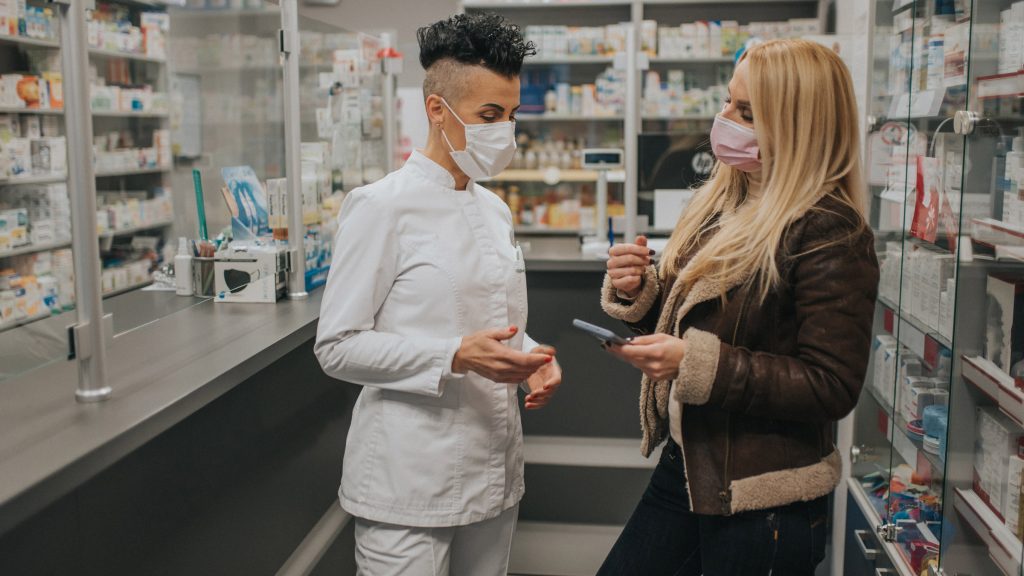Working as a pharmacist in a hospital is rewarding but comes with its own unique set of challenges. Hospital pharmacists play a crucial role in patient care and medication management. However, they often encounter obstacles that can impact their workflow and patient outcomes. In this article, we will explore the main obstacles that a pharmacist faces in a hospital setting and discuss effective strategies to overcome these challenges.
High workload and time constraints
Hospital pharmacists frequently deal with a high volume of medication orders, consultations and other tasks that can lead to an overwhelming workload. The pressure to ensure accurate medication dispensing while adhering to strict timeframes can be a significant challenge. To overcome this obstacle, pharmacists can prioritize tasks, delegate when appropriate, and utilize technology such as pharmacy management software to streamline their workflow. Effective time management and clear communication with other healthcare professionals can also help in managing the workload more efficiently.
Medication errors and patient safety
Patient safety is paramount in a hospital setting, and pharmacists play a critical role in preventing medication errors. However, misinterpretation of prescriptions, drug interactions and dosage discrepancies can occur. To address this challenge, pharmacists should maintain open communication with physicians, nurses and other healthcare staff; double-check orders for accuracy; and stay updated on the latest drug interactions and safety protocols. Implementing barcode scanning systems and automated dispensing machines can further reduce the risk of errors.
Multidisciplinary collaboration

Collaboration among various healthcare professionals is essential for providing comprehensive patient care. Hospital pharmacists often need to work closely with physicians, nurses and other team members. Overcoming communication barriers, differing perspectives and conflicting priorities can be challenging. Developing strong interpersonal skills, actively participating in interdisciplinary meetings, and engaging in regular knowledge-sharing sessions can foster a more effective collaborative environment. Collaborating with physicians and specialists can help pharmacists integrate new knowledge into patient care effectively.
Complex medication regimens
Hospitalized patients often have complex medical conditions that require intricate medication regimens. Ensuring proper administration, dosing and monitoring of multiple medications can be daunting. Pharmacists can create patient-specific medication plans, provide clear instructions, and offer counseling to patients and their families. Utilizing visual aids, simplifying instructions and leveraging technology for electronic medication reconciliation can enhance medication adherence and reduce confusion.
Drug shortages and formulary changes
Hospital pharmacists may face challenges related to drug shortages and formulary changes, which can disrupt patient care and necessitate quick decision-making. Staying informed about drug supply trends, working closely with supply chain managers and collaborating with prescribers to find suitable alternatives are crucial strategies. Maintaining a robust inventory management system and building relationships with pharmaceutical manufacturers can help mitigate the impact of drug shortages.
Patient education and adherence
Educating patients about their medications and treatment plans is a crucial part of a pharmacist’s role. However, ensuring patient understanding and adherence to medications can be challenging, especially when patients are dealing with complex regimens and multiple health conditions. Pursuing advanced pharmacy degrees equips pharmacists with enhanced patient education skills. These degrees often include coursework on patient counseling, health literacy and motivational interviewing. Pharmacists with advanced degrees can communicate effectively with patients, address their concerns and provide clear instructions on medication usage, thereby improving patient adherence and outcomes.
In line with these educational advancements, the University of Findlay offers a unique opportunity through its Distance Doctor of Pharmacy (Distance PharmD) program. This pioneering online pharmacy degree program stands out as one of the few of its kind, allowing aspiring pharmacists to earn their PharmD degree online from a reputable and accredited institution. Structured over four academic years, the program combines the convenience of online didactic coursework (both synchronous and asynchronous) with valuable on-campus immersions and experiential learning in the students’ communities.
Evolving healthcare regulations
The healthcare landscape is continuously evolving, with new regulations and guidelines being introduced regularly. Hospital pharmacists need to stay updated on changes that can affect medication practices, reimbursement and documentation. Undertaking continuous education, attending conferences and joining professional organizations can provide pharmacists with the knowledge needed to adapt to evolving regulations. Collaborating with hospital administration and legal teams can also aid in navigating complex regulatory challenges.
Technological integration and automation
While technology can enhance efficiency, its integration can also be a challenge for hospital pharmacists. Learning to use new electronic health record systems, medication dispensing technologies and telehealth platforms can be time-consuming and overwhelming. Training programs, workshops and IT support can help pharmacists adapt to new technologies. Striking a balance between automated processes and maintaining a personal touch in patient interactions is crucial to providing comprehensive care.
Emotional and mental health strain
Working in a hospital environment, pharmacists often witness patients’ struggles, sufferings and challenging medical outcomes. This emotional burden can lead to burnout, compassion fatigue and mental health issues. To overcome this challenge, pharmacists should prioritize self-care, seek support from colleagues, engage in mindfulness practices, and recognize the importance of seeking professional help when needed. Hospital administrations can contribute by implementing wellness programs and promoting a culture that values mental and emotional wellbeing.
Language and communication barriers
Hospitals often serve diverse patient populations with varying cultural backgrounds and languages. Effective communication with patients who do not speak the primary language can be a barrier. Overcoming this challenge requires the availability of interpreter services, multilingual staff and culturally sensitive communication tools. Pharmacists can also develop basic language skills, use visual aids and collaborate with interpreters to ensure accurate medication counseling and patient understanding.
Conclusion
Working as a pharmacist in a hospital setting presents a range of challenges that require resilience, adaptability and a commitment to patient safety. By addressing obstacles such as high workloads, medication errors, collaboration barriers, complex regimens, drug shortages and changing regulations, pharmacists can enhance their effectiveness and contribute to improved patient outcomes. Through effective communication, proactive problem-solving, continuous learning and the utilization of advanced technologies, hospital pharmacists can overcome these challenges and continue to play a pivotal role in modern healthcare.






















